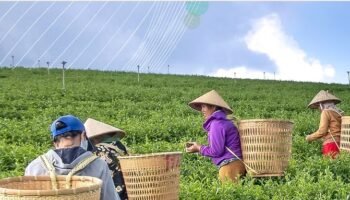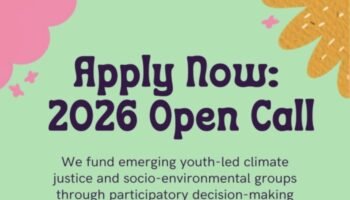The CHILD Implementation Grants Programme seeks to provide funding support to not-for-profit organisations from low- and middle-income countries working in the area of drug use prevention and treatment, care and rehabilitation, having staff trained on the CHILD curriculum and implementing activities for children and young adolescents actively using or at risk of using drugs.
CHILD Implementation Grants Programme Objectives
- This Call for Proposals takes into consideration the importance of harnessing all available resources towards the implementation of activities aimed at meeting the objectives of this Grants programme.
- The objective of this Grants programme is to strengthen the capacity of civil society to prevent drug use globally using evidence-based drug prevention, treatment, care and rehabilitation interventions with a focus on children and young adolescents at risk of using drugs.
Thematic Focus and Priority Issues
- This Call for Proposals seeks to provide funding support to not-for-profit organisations working in the area of drug use prevention and treatment, care and rehabilitation, with staff trained on the CHILD Curriculum and whose projects are aimed at implementing evidence-based drug use prevention, treatment, care and rehabilitation programs for children and young adolescents actively using or at risk of using drugs in South American, Asian, and African Countries where the CHILD Curriculum training has been provided.
- Grant funding under this Call for Proposals shall be provided to projects that:
- Are focused on evidence-based prevention and treatment of substance use among children. This will be assessed on the basis of how well the project activities are in line with the types of interventions and policies found to be effective in preventing substance use based on the available scientific evidence, as outlined in the UNODC- WHO International Standards on Drug Use Prevention and the UNODC- WHO International Standards for the Treatment of Drug Use Disorders;
- Are focused on children and young adolescents 4-12 years old and implemented in a developmentally appropriate way, allowing for tailoring language, main messages and interventions to the age and stage of the child;
- Demonstrate the use and dissemination of the CHILD curriculum (link) aimed to help reduce drug use among children;
- Provide a set of measures and plans to collect process and outcome data to show the extent to which the CHILD curriculum is used to treat children for substance use issues. Ideally, the CARRE measure will be included in the set of measures used for outcome evaluation of the CHILD intervention.
CHILD Implementation Grants Programme Funding Information
- Proposals with budgets from USD 10,000 up to USD 50,000. Please note that value for money will be assessed as a part of the rating criteria and proposed budgets should be expressed in USD.
- As a general rule in UNOV/UNODC, grant awards should not exceed the organization’s annual income from the previous fiscal year.
Duration
All activities financed by this Grants programme must be implemented within the period in the agreement (from 9 to up to 12 months). Depending on the proposed period in the agreement, the implementation of the activities must be completed latest by 9 January 2026.
Location
Applicants from low- and middle-income countries in South America, Asia, or Africa that seek to implement projects for beneficiaries of the same country are eligible for grant funding. Countries are classified as low-, lower-middle- or upper-middle- income economies as according to the World Bank country classifications.
Eligibility Criteria for CHILD Implementation Grants Programme
- The applicant must be a non-profit making organization (CSOs including NGOs, CBOs) from low- or middle-income country in South America, Asia, or Africa, registered for not less than two (2) years from the date of application under the relevant Laws of the country where it is registered;
- The applicant must have staff within their organization that have completed all six courses of the CHILD curriculum and at least one course of the CHILD Train the Trainer;
- The applicant is directly responsible for the preparation and management of the project, i.e. not acting as an intermediary;
- The applicant has prior experience of at least two years implementing activities in the area of drug use prevention for children at risk of using drugs, treatment, care and rehabilitation for children with drug use disorders, health education, and/or other related field of work;
- The applicant’s annual income from the previous fiscal year is higher than the requested grant amount.;
- The applicant has a bank account capable of receiving international deposit.
How to Apply
Click Here to apply and for more details
Application Deadline: Friday, 16 August, 23.59 CEST.
Elevate Your Business With Our Expert Services!







